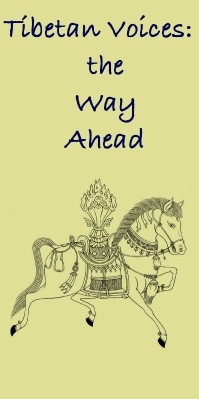Democracy and Communication
by a Tibetan living in the USA
About two weeks before the Special Meeting, I learned that the TGIE had distributed a kind of ballot asking Tibetans to make choices regarding the future direction of Tibet. Asking around, I found that other Tibetans either hadn’t heard about this, or didn’t understand the extraordinary significance of the meeting, or were baffled about what was going on. They didn’t realize that their opinions could be included at the meeting.
Fortunately, a friend sent me a link to Wangpo Tethong’s website with its electronic poll, whose results were to be presented at the Special Meeting as the thoughts of the younger generation. This was good, but I had to wonder: what about Tibetans who are internet−illiterate, or who don’t understand English, or who had missed the local community meeting? I also wondered what steps were being taken to consult Tibetans inside Tibet, who are the majority and have direct knowledge of the impact of Chinese policies.
If few Tibetans have had input into this meeting, I think that reflects poor communication rather than apathy. But such communication is important for the legitimacy of the outcome of the meeting and for the health of our democracy. It’s something we need to work on.

